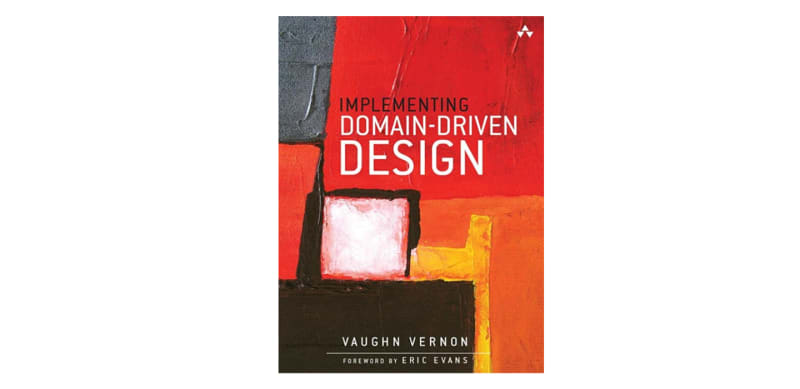Books that help us to be better developers
Time to be a software craftsman
In this article, I want to share with you a list of the most representative books that have helped me to be a better developer, I’m sure that I’m not the only case and a lot of developers share the same feelings about those books.
Part of the professional growth of a software developer is reading and learning more technical terms that help us to write and design better codes, In my personal case I found help from the list of books that I’ll mention and I’m very glad to share with you and try to help you to find a very good way to get knowledge.
Sometimes we as developers find information in forums or posts but some of times we understand how to implement and how to use the technology or technics that we are searching, but some of the times we need to go deeper and investigate more about the reasons about why is recommended to do that. That take me year ago to investigate and find that books that some times were recommended by friends or for software architects that help me to be better developer.
Just as I learned, now is the time to help others to find a way to be better and perform the knowledge that we have.
The following list of books is recommended for any developer level you can be a jr, a mid, or a senior, doesn’t matter the level, the important is to become into a software craftsman.
Lets statrt with the list:
Robert C. Martin (Uncle Bob)
This guy is a renowned author and programming expert. The books that I could recommend are the following:
Clean Code: A Handbook of Agile Software Craftsmanship
The Clean Coder: A Code of Conduct for Professional Programmers.
Clean Architecture: A Craftsman’s Guide to Software Structure and Design.
Software Craftsman, the professionalism, Pragmatism, Pride
Note: If you recommend another book from this author please add it on the comments and then everybody could learn more :)
Eric Evans
As an author and expert in object-oriented software development and modeling complex domains. He is best known for his book “Domain-Driven Design: Tackling Complexity in the Heart of Software,” which is considered a classic in the software development field.
Domain-Driven Design Reference: Definitions and Pattern Summaries: a reference book that provides definitions of key terms and summaries of patterns used in domain-driven design.
-
Implementing Domain-Driven Design: a book that explores how to apply the principles and patterns of domain-driven design in the real world.
Note: If you recommend another book from this author please add it on the comments and then everybody could learn more :)
Vaughn Vernon
Is an author and expert in object-oriented software development and domain-driven design.
- Implementing Domain-Driven Design: a book that provides a practical guide to implementing domain-driven design principles in software development.
Note: If you recommend another book from this author please add it on the comments and then everybody could learn more :)
Murat Erder
- Continuous Architecture in Practice: Software Architecture in the Age of Agility and Devops: he book discusses how software architecture can be integrated into an agile and DevOps environment to help organizations achieve greater agility, quality, and innovation in their software development practices. It covers topics such as the principles of continuous architecture, the role of architects in agile and DevOps teams, architectural governance, and architectural practices such as modularization, microservices, and cloud computing. The book also provides practical guidance on how to implement continuous architecture in real-world scenarios.
Martin fowler
Is a well-known software developer, author, and speaker. Some of his most well-known books include:
Refactoring: Improving the Design of Existing Code: a book that provides guidance on how to improve the design of existing code through refactoring techniques.
Patterns of Enterprise Application Architecture: a book that presents patterns for designing enterprise applications, such as Data Mapper, Service Layer, and Table Module.
Domain-Specific Languages: a book that explains how to design and implement domain-specific languages (DSLs) for specific problem domains.
Note: If you recommend another book from this author please add it on the comments and then everybody could learn more :)
Andrew Hunt, David Thomas
- **The Pragmatic Programmer: Your Journey to Mastery: **It is a classic in the software development industry and provides practical advice on how to become a better programmer and improve your skills over time. The book covers a wide range of topics, including software design, coding techniques, debugging, testing, and project management. It also emphasizes the importance of teamwork, communication, and continuous learning in software development. The book is written in a conversational tone and includes real-world examples to illustrate its principles. It has been widely praised for its practicality and readability and is recommended for software developers at all levels of experience.
Richard N. Taylor, Nenad Medvidovic, and Eric M. Dashofy
- Software Architecture: Foundations, Theory, and Practice: The book provides a comprehensive introduction to software architecture, covering topics such as architectural styles, patterns, and tactics, as well as the principles and practices of software architecture. It also discusses the role of software architects and the importance of communication and collaboration in architecture design. The book includes case studies and examples from real-world software projects to illustrate its principles and provide practical guidance. It has been widely praised for its depth and breadth of coverage and is recommended for software architects, developers, and project managers who are interested in software architecture.
Final notes
Those are some of the books that I could recommend to you in order to improve your skills.
Feel free to recommend any other book helpful for software developers.
And as you can see all the recommended books are not related to some specific programming language, then the knowledge could be applied to most programming languages.




















Top comments (0)